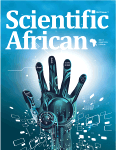
Changing perceptions about COVID-19 risk and adherence to preventive strategies in Uganda: evidence from an online mixed-methods survey
Nshakira-Rukundo, Emmanuel / Anne WhiteheadExternal Publications (2021)
in: Scientific African 14, e01049
DOI: https://doi.org/10.1016/j.sciaf.2021.e01049
Since the COVID-19 pandemic started, countries have enacted a series of non-clinical preventive mechanisms aimed at slowing the rate of spread. However, these mechanisms can be effective only when they are correctly followed and only when individuals believe the risk of COVID-19 is high enough to warrant following them. As risk perceptions decline, individuals are more likely to relax following preventive measures and the rate of spread might increase. This study assesses the determinants of changes in perceptions of COVID-19 risk and the determinants of adherence to preventive measures in Uganda.Logistic regression results show that age, access to information and being supportive of preventive measures strongly predicts keeping higher risk perceptions and adhering to preventive actions. Qualitative results show that risk perceptions are also influenced by economic stress, citizens’ level of confidence in the government, local political climate and the extent of proliferation of misinformation about COVID-19.

